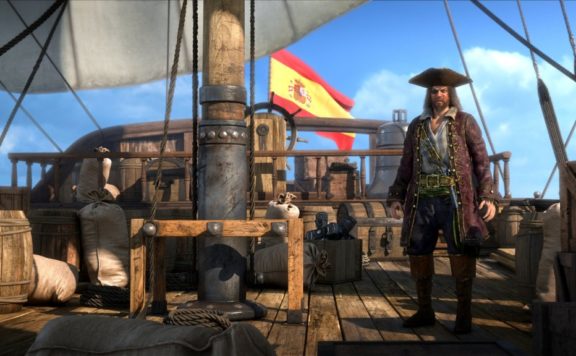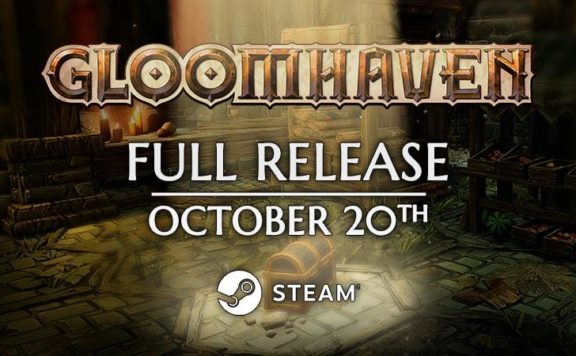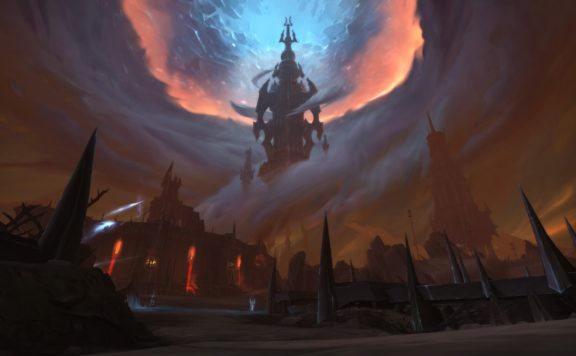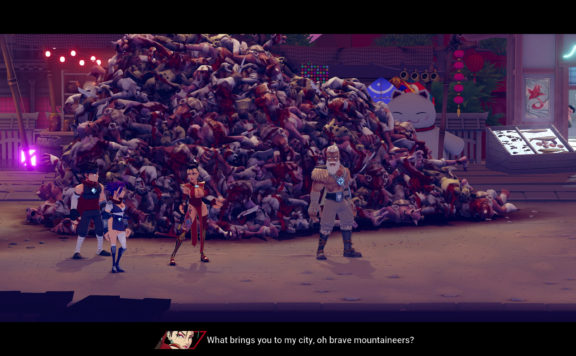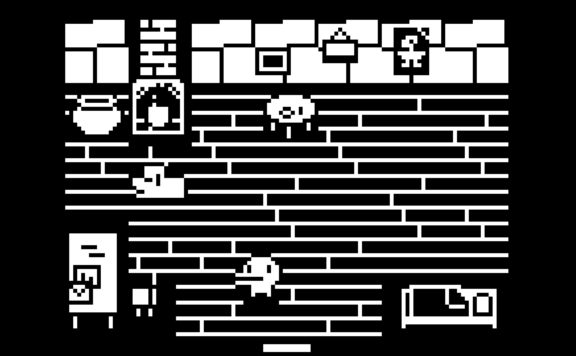Surely you have considered becoming part of your favorite movie or video game? Even if you’re not the main character, how exciting would it be to see everything from the inside and also be able to influence the plot? This is the premise behind The Bookwalker: Thief of Tales and the subject of our review.
The Bookwalker has been developed by a small studio called Do My Best. Their first game, The Final Station, is a side-scrolling shooter video game with train simulation and exploration elements. This time, they invite us to a world where it has become a reality. But instead of films and games, our hero can get into almost any book and into worlds created by writers.
And our task is to be able to take unique things from these books: be it the hammer of Thor, the sword Excalibur or the potion of immortality.
Writer or thief?

Players find themselves in the near future. The writer Etienne Quist committed some particularly serious crime, and now his works are being removed from sale, and the author himself is sentenced to 30 years of work in a book publishing house. Our protagonist understands how quickly convicts go crazy and die and decides to get rid of problems in a not entirely legal way – the writer becomes a sort of thief and smuggler. He finds people who seem to be able to break his written handcuffs. But for this, the hero must visit six books and transfer the six most valuable items from them into reality.
The story can be divided into two unequal parts. Before getting into any of the books, the character walks around the apartment in first person – sometimes interacting with neighbors, taking orders, and picking up the phone to talk. You won’t have to spend much time there – you only get to the apartment at the beginning and end of each chapter. Much more time is devoted to traveling through book worlds presented in an isometric perspective. All these books, unfortunately, are fictional, but that doesn’t make them any less interesting.

Every time Etienne enters a new world, he finds himself in an incomprehensible place, in an incomprehensible time. The environment will be new for both the protagonist and the players. We understand our goal. We know a rough description of what is happening in this universe, but at first, we don’t even know where to go and what to do.
Luckily, our smuggler writer is accompanied by a non-ordinary character on all his book journeys – the writer calls him Roderick because “Roderick” himself does not remember his name. I think he had an “X” in his name, and maybe he was a doctor… Anyway, Roderick knows the plots of the books we’re about to visit. And in this case, he will advise Etienne on what to do next or how best to act in a given situation.
If at first Quist appears before us as a cynic who will do everything necessary to achieve the goal, then Roderick becomes his conscience and moral compass. In any case, Etienne quickly becomes attached to the mysterious character and, after a while, feels somehow wrong without him.

Time for adventure
At the same time, without getting tired of one world, you immediately find yourself in a new one – even more unfamiliar or just a friend. And between travels through the books, we wander through the reality of Quist and learn about him and his neighbors, as well as about the past and the whole world of the hero.
Without unnecessary spoilers, we note that this world is truly amazing. The writers here are the same wizards who create universes. Like now – video game developers. And “walkers” travel through the book worlds, who, like our hero, can engage in banal theft and sale of artifacts on the black market. To prevent this, the books’ plots are patrolled by special police units.
Playing Bookwalker is like falling asleep in Christopher Nolan’s Inception. Once – and you are in the world of a hero. Similar to ours, but somewhat simplified and modified. Two – and your hero in a virtual reality of the second level. Here you will find fading magic in the analog of Hogwarts, post-apocalypse, or a dystopian future like Warhammer 40,000. Three – and who knows what will happen.

But don’t expect too much from Bookwalker. This very small game can be completed in less than six hours. If you do not read carefully and go straight to the goal, do not waste time thinking. But this way, you will not get even a tenth of the pleasure of the game.
The gameplay is a quest with a simple turn-based combat system and RPG elements. We find ourselves in locations with several interactive objects and characters with which we can somehow interact. Most often – to communicate, periodically choosing one or another answer option. Most of the choices in the game are illusory, and what will happen will happen. But sometimes the book’s plot does not develop according to plan, and only towards the end do you decide what the final will be.
One of the themes of Bookwalker is the treatment of book characters as objects or subjects, living or non-living. That is, as objects or equal people with desires, fears, and thoughts. The player’s choice is mainly built around this attitude: we can lie and use oncoming people or risk telling the truth, helping and even saving the “locals” when it’s possible. But always – read, read, and read again. Otherwise, there is no point in playing the game. Oddly enough, the developers did not heavily overload the plot with dialogues. There is much talk here, but not as much as in some Disco Elysium.
What else to do in a fictional world?
Etienne Quist, who in the book assumes the image of a paper man, must interact with objects: move something, take something with him from his world, create something… For example, there are a lot of little things in the book. a world that is processed into ink that we use in battles and in the story, for example, special actions to save a dying person, changing the world around us.
Also, in the game some items are needed to create useful tools. There are only three types: crowbar, master key, and wire cutters. This is not a problem at all, given that the levels are built so that you still have to do it first, then the second, and then the third.
But sometimes the book does not have what we need, and then our hero, by pressing one button, goes into his reality in order, for example, to pick up a shovel from the pantry on the first floor.
So, in any case, here in the game everything is quite linear. We wander around the locations, click on all the objects (some of them are so small and so easy to miss!), And if there is an enemy nearby, then we fight.
The fights here are pretty simple. The hero has five health points and a supply of ink – action points. The hero can use a shield, deal some damage to one enemy, stun a group of enemies, or replenish ink at the expense of the enemy’s health. When our health ends, you can refresh yourself with apples or bread, which we find in all places.
After the “passage” of each new book – a successful or not very successful theft – the hero is “pumped.” He pumps one of his combat skills: for example, he can restore health with a shield or increase the damage from a particular attack. None of this makes the fight deeper. It simply allows you to fight more effectively with a growing number of opponents. And at the end of the game, come out of the fight not just as a winner but also, as it were, rested and rejuvenated.

The control on the controller needs to be fixed; namely, the character is very unresponsive. He can stand rooted to the spot in one place and not react in any way to control attempts – you have to release the stick, wait a split second, and only then try again, also close to the points of interaction. It happens that you need to approach them and wait until the character takes the correct position. Because of this, it is sometimes very inconvenient to explore locations – it is not immediately possible to turn to the object with which you need to interact; then you won’t be able to go to the area, thinking that there is an invisible wall, although the character did not want to go there right away for some reason.
You have to interact with many things: look for valuable trophies in the boxes, solve simple puzzles, and communicate with everyone. This is a classic quest, but you don’t need to turn into the aisles – there is nowhere to get lost. Sometimes the character enters into battle; some battles can be avoided if you choose the right answers in the dialogue.
But no matter how rustic The Bookwalker may seem in the end, the game is much more pleasing than it can upset if you find fault with trifles. The only thing that upsets is the crumpled ending. It all ended too quickly… Although the idea with the epilogue turned out to be great. Let’s hope there is more — much more — to come!
The Bookwalker: Thief of Tales is currently available for PC via Steam, Epic Games Store, and GoG. It is also out for PlayStation and Xbox.
This review was completed thanks to a code provided by PR.


